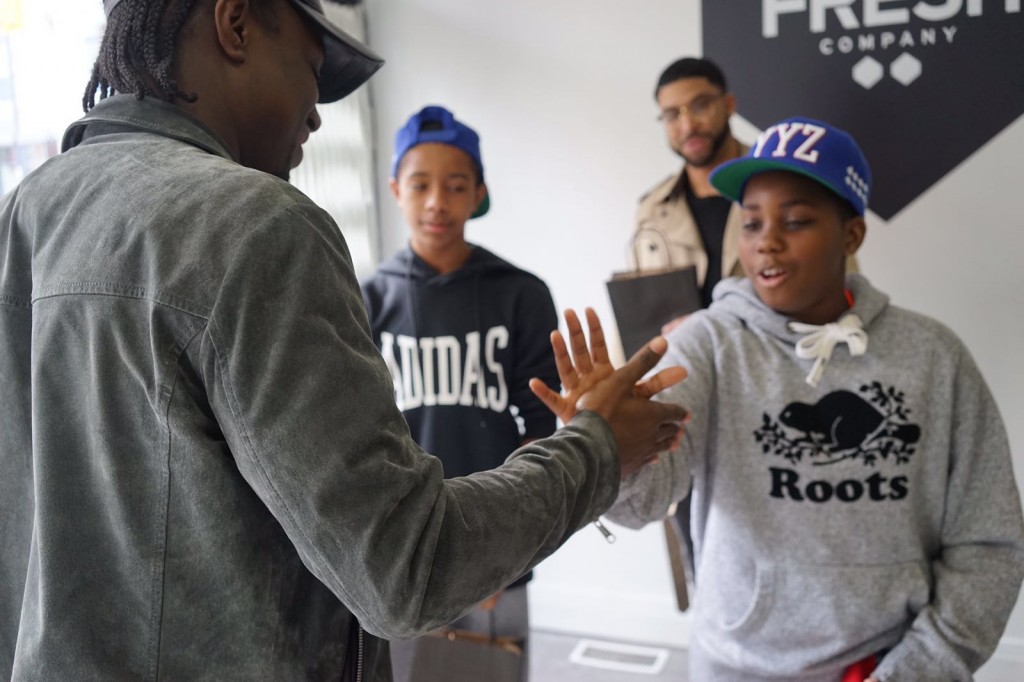The real education you get in college doesn’t come from classes, but everything outside of that. There is a quote out there somewhere that more eloquently illustrates this idea about university education. Nevertheless, the statement is pretty accurate. Much of what is learned in university is chiefly ascertained through navigating such an environment. Of course, there are many majors in university that require one’s learning inside the books, articles, labs, and lectures to outweigh the overall university experience. But I am pretty sure my degree in the Humanities would have been equally valuable regardless of the courses that appear or do not appear on my transcripts. However, in elementary and high school, we are unwilling to accept this understanding as a truth in most cases.
Every class trip must be tied into “curriculum expectations”. Sure, any teacher worth her salt can connect a trip to a class. But this also stems in part because, for young minds, there is so much learning to do outside the confines of the classroom. In eighth grade, I went on a Phys. Ed. trip downtown to visit the Hockey Hall of Fame. That trip taught me more about Geography than it did about Phys. Ed. On that bus and subsequent subway, I learned valuable life lessons. On that day, the most important lesson I learned was that the world was bigger than my block, bigger than the east side of my city. Lessons that I guess I could have learned if I was engaged in the Geography curriculum. But these were lessons that were also not direct objectives of the Geography curriculum anyways.
Last week, I took a bunch of students from a program I run at my school, called The Young Men’s club, to visit a store in downtown Toronto. The store is owned by a man who shares a similar experience as the boys who came on the trip. The most important commonality between the store owner and these boys was that he too didn’t really like school all that much. Combined with some family tragedy, this disdain towards school left him in a dangerous position. He could have easily become another statistic, but he didn’t. He had a passion and he made sure that he was never going to stop excelling until he reached his goal. After inviting the boys to look around his store, he brought them to his meeting room, let them sit in the “big boy chairs” and basically detailed his life. He deflected instances of misbehavior and tiny disruptions in ways that a person could only do if they had once gone through similar understandings. He avoided the whole, “stay in school and you could one day be successful like me” narrative and simply answered their curious and engaging questions in an authentic way. Through his story, one couldn’t tell if he earned a university degree or even finished high school, but that did not matter. He was speaking about excelling. Also, he expressed something unique to trips and talks like this – he showed that he cared that these boys invested in their own future.
In retrospect, I cannot precisely answer what these boys learned from that trip. I do know that they were privy to information that would not be afforded to them on that day if they sat in their classrooms. I hope that they will take, for whatever it’s worth to each one of them, what they experienced and use it as an opportunity for their own personal self-growth. And yes, the positive experiences of trips like this may not be directly evident on subsequent tests, assignments, and report cards. But that is not the essence of a school trip, and should never be the heart of education anyways. Trips remind me of my older cousin; whenever he took me out for a bit with his friends, he would say, “You gon’ learn some shit today!” Despite what that learning entails, taking a trip is a facet of that real education one gets when experiencing school. Whether school facilitates it or not, these are important because they scratch at a fundamental pillar of education: learning is experience. Engagement with curriculum, with teachers, with the hallways, that is all learning, but we cannot forget that it is learning through experience. It is naïve to think that elementary and high school are not the same. Despite what some may think, they are almost the same. For these students, a trip on a bus, then subway, then streetcar, then to talk to a man who shares a similar upbringing and hear his story – that day alone, is learning. When it is done in the right way, we can rest assured that the learning that takes place is positive.
[share title=”Share this Post” facebook=”true” twitter=”true” google_plus=”true”]

